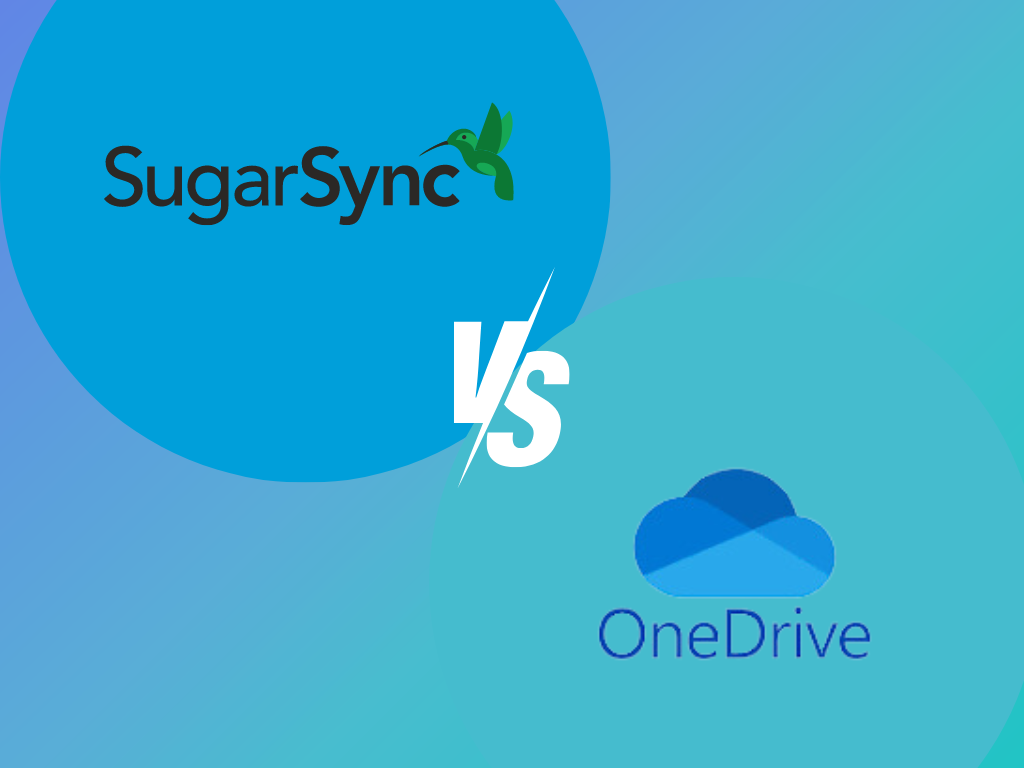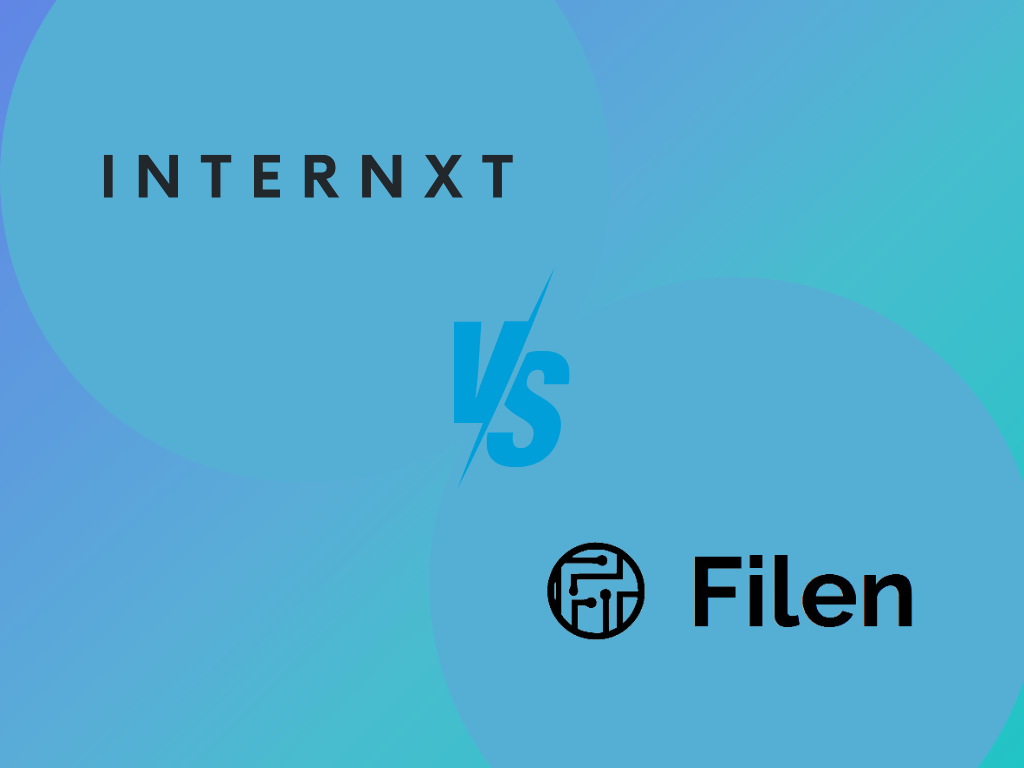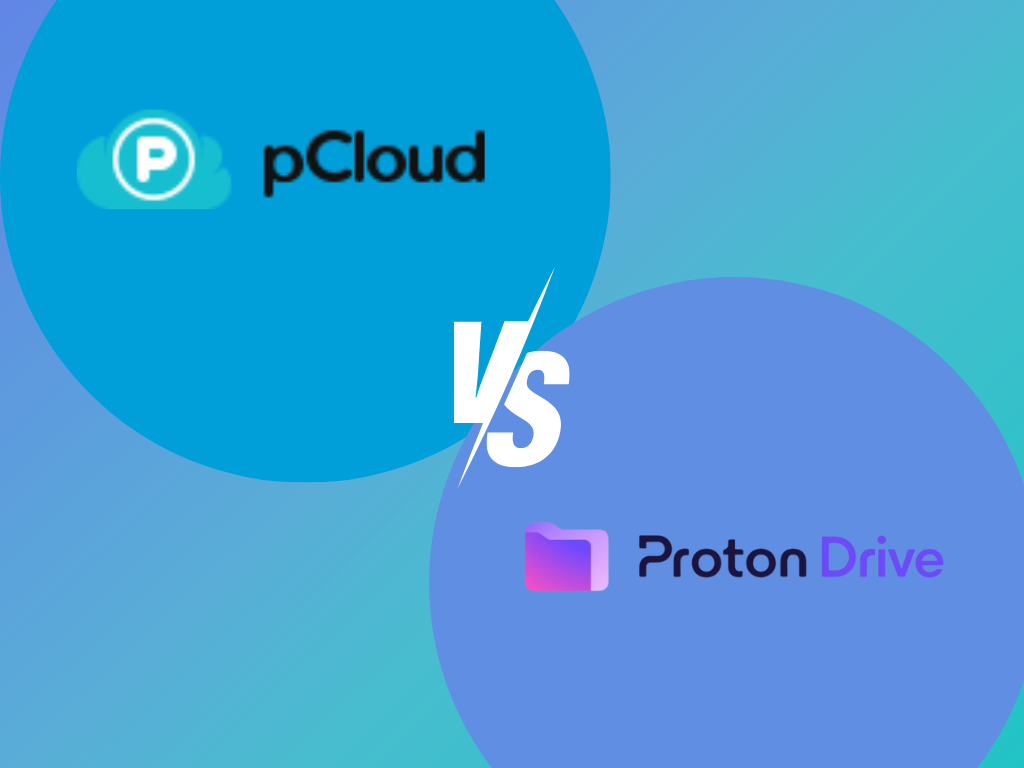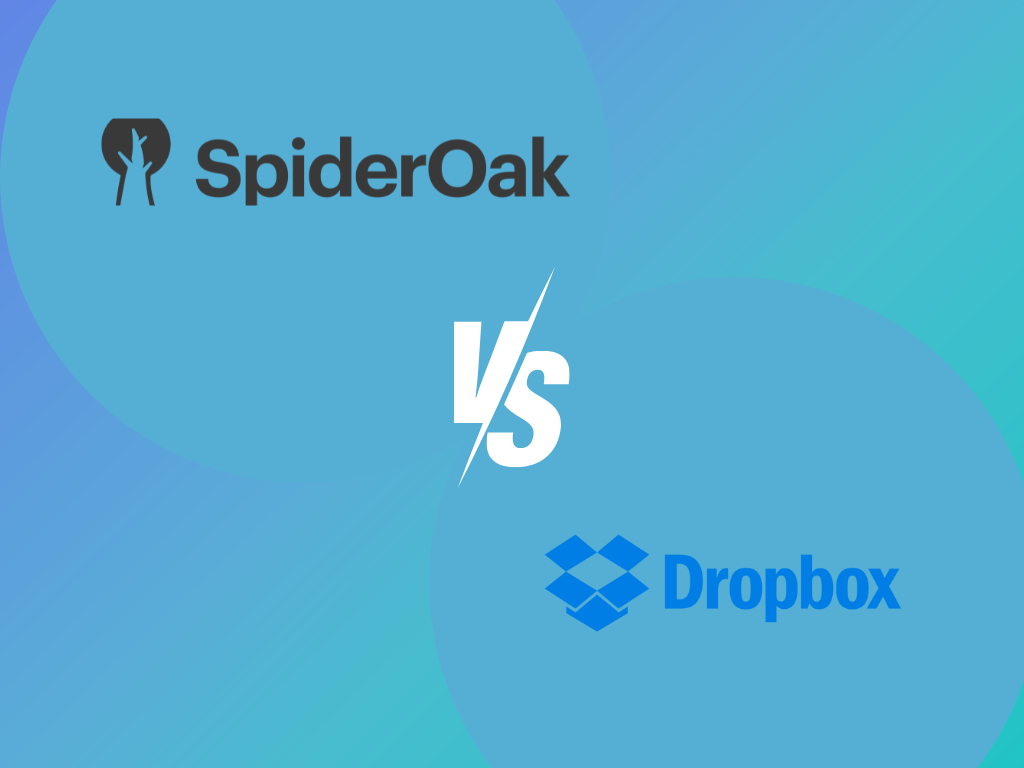The main difference between SugarSync and OneDrive lies in their collaboration abilities. With SugarSync, you can easily share files and folders, allowing you to choose who can access them. OneDrive, on the other hand, works perfectly with other programs in the Microsoft Office Suite.
In this article, we will look at features of SugarSync and OneDrive that make them stand out.
Comparing SugarSync and OneDrive
We prepared a table of features to help with a quick SugarSync and OneDrive comparison.
| Collaboration Tools | User Interface and Ease of Use | Customization and Branding | Cost | |
| SugarSync | Enables efficient team collaboration through multi-folder syncing, easy file sharing with or without a SugarSync account, and collaborative shared folders with editable permissions. | User-friendly desktop and mobile apps; Straightforward navigation, but its web client lags behind in ease of use. | Limited | From $7.49 a monthly |
| OneDrive | Seamless file sharing and collaboration across Office apps; Offers detailed activity tracking and file management features and supports customizable link sharing. | Easy to use with its seamless integration with Microsoft products. | Limited | Starts free and pay as you grow |
Access Control and User Permissions
When comparing OneDrive vs SugarSync, the key difference is how they handle user access to your files. Both allow you to control who can reach your stored files, but the methods they use to do this vary considerably.
With SugarSync, you can easily manage access to your shared folders, which works on multiple devices. It ensures that your content is safe and limited to those permitted. However, it’s important to note that SugarSync suits individual users and small businesses more and might not be the best choice for larger companies with more complex permission needs.
Meanwhile, OneDrive, as a Microsoft Office 365 suite component, offers a unified permissions system. It aligns well with tools like SharePoint, making it an ideal choice for companies already using the Microsoft platform.

Collaboration Tools
As a OneDrive alternative, SugarSync makes it easy to share files and folders with a few clicks. You can set permissions for different folders, which is great if you’re part of a team. SugarSync’s ‘Public Links’ feature lets you share files with those who don’t have a SugarSync account. But, it doesn’t support real-time collaboration like document editing.
Meanwhile, OneDrive has an edge in this area. It’s part of the Microsoft family, which means it works smoothly with Microsoft Office. With OneDrive, you and your team can work together on Word, PowerPoint, and Excel files, instantly seeing updates. It prevents confusion from having multiple versions of the same document. The SugarSync alternative also simplifies group tasks such as editing a document or working together on a spreadsheet. It allows you to share documents with anyone – even if they don’t have a OneDrive account and uses links to make accessing these files easy.
Reliability and Uptime
Looking at SugarSync vs OneDrive regarding reliability and uptime, we see a few differences. Both cloud storage solutions have significantly improved to ensure steady uptime for their users, yet the particulars differ.
When it comes to SugarSync’s reliability, it performs consistently well. There are very few reports of server issues or problems accessing data. Thanks to SugarSync’s strong infrastructure, it is a dependable cloud storage option.
Meanwhile, OneDrive, which is part of the Microsoft suite, has the advantage of Microsoft’s large, global cloud infrastructure. It guarantees a high level of dependability and continuous service for OneDrive users. Downtimes are rare and typically fixed quickly due to Microsoft’s vast resources and dedication to keeping users happy.
Compliance Standards
Although it may not have as many specific compliances, SugarSync is GDPR-compliant and provides robust encryption for data security. Moreover, SugarSync stores its servers in very secure data centers to protect user data further.
OneDrive, made by Microsoft, meets many compliance standards. It follows rules like the GDPR, the HIPAA, and even more specific ones like FINRA. Because of these, OneDrive is a safe pick for businesses in industries that need strict data rules.
Integration with Existing Systems
SugarSync provides an effortless way to synchronize your files across various devices automatically. Its user-friendly API allows in-depth file handling and seamless integration with the cloud. This REST-style architecture API simplifies tasks such as creating, deleting, and retrieving data, making it easy to use across different platforms.
However, OneDrive gives excellent support to Windows and Office 365 users. It offers features like Files On-Demand and instantly working together on Office documents. It’s most beneficial for those who widely use Microsoft’s product range. It uses the power of the Windows system and Office apps to boost user experience.
Cost
SugarSync’s Basic plan costs $7.49 monthly and gives you 100 GB of storage. The Standard plan offers 250 GB for $9.99 a month if you need more. And for heavy users, the Pro plan comes with 500 GB at $18.95 a month.
If you’re a business and need more space, you can choose the $55.00 per month plan. It gives you 1000 GB for three users. You’ll get features like folder syncing, high-level security, and device support. Plus, you have the flexibility to pay month-by-month and can cancel anytime. Try it out with a 30-day free trial before you decide.
OneDrive’s pricing plans are varied to suit different needs. The primary storage option, offering 5GB, is free for individual users. You can upgrade to 100GB for just $1.99 each month. The Microsoft 365 Personal and Family plans to provide 1TB per person if you need more space. These are priced at $6.99 monthly for individuals and $9.99 for families.
Business users can start with a $5 monthly option that provides 1TB of storage. If you need more, an unlimited storage plan for $10 per month is paid annually. These plans cater to needs ranging from primary storage to advanced business use, including extra productivity and collaboration tools.

Customer Support
In the SugarSync vs OneDrive comparison, support is essential because there is no guarantee that there won’t be technical difficulties, and you need to be sure that your selected provider is there to help when you need it.
As an alternative to OneDrive, SugarSync has many methods for customers to find assistance. They boast a detailed FAQ area that frequently provides solutions for common problems.
Even though SugarSync doesn’t have live chat support like OneDrive, they compensate for this with a useful support ticket system. In addition, premium customers have access to immediate phone support. Microsoft provides a wide range of support for OneDrive users. These include a thorough online resource center, dedicated customer service, community forums, and direct contact with customer service. Their in-depth troubleshooting guides might be handy if you’re quite skilled with tech.
Mobile Access and Apps Data Sovereignty
In our SugarSync vs OneDrive comparison, the ability to access files from anywhere is crucial. In this era, on-the-go access to files is incredibly beneficial.
SugarSync has a mobile app that’s easy to use on both Android and iOS devices. You can access, share, and even change your cloud files from your phone or tablet. SugarSync automatically backs up photos, so your cherished moments are always safe.
OneDrive also shines in providing mobile access. They offer a user-friendly app for Android and iOS devices, making opening, viewing, and sharing documents simple. A standout feature is the integration with Microsoft Office apps on mobile. It lets you update your Word documents or Excel files directly on your device using the linked apps.
Regarding keeping your data safe, SugarSync and OneDrive have covered you. SugarSync keeps your data from prying eyes during transfer and when it’s stored.
On the other hand, OneDrive follows Microsoft’s strict rules for data protection and privacy. However, remember that where you or your company is physically located could impact data sovereignty. This is mainly because both providers must follow their home country’s laws.
Fill: A Better Choice to SugarSync
When weighing up SugarSync vs OneDrive, an interesting alternative you should consider is Fill.
Fill not only complies with global laws like HIPAA, GDPR, and DPA but also significantly enhances your business operations.
The platform supports vital Know Your Customer (KYC) and Anti-Money Laundering (AML) regulations. Its powerful identity verification feature ensures trust, responsibility, and legal compliance in your business operations.
In addition, Fill’s dashboard makes it easier and more efficient to store, track, and organize business documents.
You can boost your work efficiency by using Fill with tools like Zapier, Hubspot, and Google Workspace. These integration capabilities have been said to save hours of work, reduce errors, and increase productivity and profits.
So, while comparing SugarSync vs OneDrive, you may want to throw in Fill as an alternative to consider for your business.
Sign up for a free Fill account today to get started.




